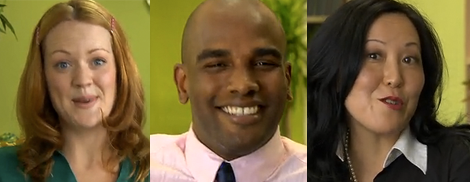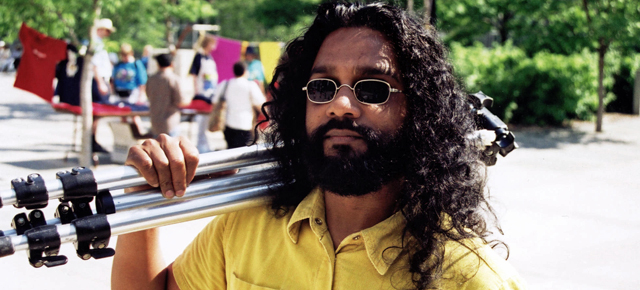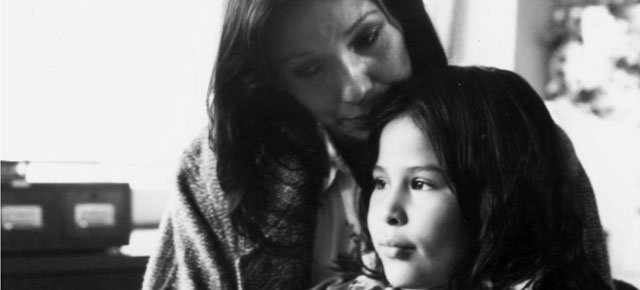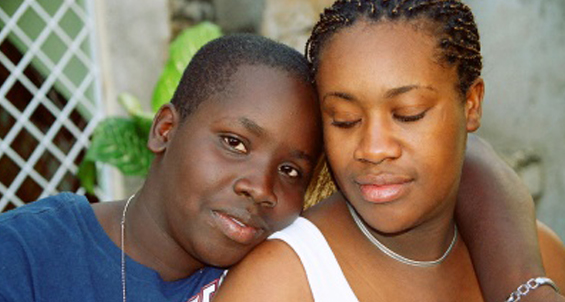How did you get involved with Work For All to direct Jaded?
Between 2003 to 2005, I made a film for the National Film Board of Canada (NFB) called Why Thee Wed, a documentary about British Columbia’s same-sex marriage case. In February 2009, I received an e-mail from Aisling Chin-Yee, Line Producer at NFB’s Work For All, to write a film about racism in the workplace. I submitted my proposal in March or April of that year and in May, Aisling called me to tell me that they had chosen to produce my project.
What inspired you to make this film in the first place?
When Aisling had approached me to write a film of this sort (addressing racial discrimination in the workplace), I immediately had this image of a girl named Jade who was giddy, subservient, aims to please and really really wanted to work her way up the ladder.
I mean, I’ve never really thought about making a film about racism until NFB asked, but because of my past experiences, I seemed to have known all along what and how I wanted my message carried out.
Why did you choose to make the film a mockumentary?
That’s interesting, because when I first inquired about what kind of film they were looking for, I was told that NFB only makes documentaries and animations. I asked if I could make a mockumentary and the response was a firm “no.” But then I thought, whatever, I’m going to write this film the way I’ve imagined it and if they choose it great, if not, then at least I know I didn’t skew away from my vision. Sure enough, they decided to take on my project!
So, the moral to all filmmakers and other aspiring artists out there is: If you have an idea or vision, go for it, because you never know.
Why did you choose to tell Jade’s story from the role-reversal, or, what some may call “reverse racism,” perspective?
I’m a visible minority and I’ve seen a lot of films made, many articles and books written from the perspective of a visible minority. Every time I encounter something like that, I cringe because it always brings forth the victim mentality, the notion of poor me. But we (visible minorities) shouldn’t think like that, we have to empower ourselves.
I’ve asked myself, who ultimately needs to see this film? The visible minority has already seen and known about racial discrimination, we experience it every day. So, it’s really the majority who have to see this and I hope that it can connect to audiences who would not necessarily know about the situation. I should add too that in some places like Toronto and New York, where there is a higher volume of ethnicity, more white people are feeling like they are in the minority now. Thus, Jaded is intended to appeal to everyone and everyone who have, at any point in time, felt subjugated because of their race.
And the fact that the film was intentionally made as a comedy…?
The challenge with making a film about racism is how do we address it. Humour releases a lot of tension that often surrounds the topic of racial discrimination and the type of racism found in Jaded is subtle; not about lynching or anything blatantly abusive.

About the characters, how did you come up with them?
I intentionally wrote Jade as a character coming from “no place.” I didn’t want people to think that she was of any particular race or culture, so I tried to make it as general as possible, i.e. the Prairies.
[Shaq King] is a play on the name Shaq and Martin Luther King, Shaq+King, or “shocking.”
[For Wen Dee] I wanted to find someone who could portray this character as an authoritative boss, but in a funny way. There was honestly no one else who could have played this part better than Judy Lee and she did a fantastic job.
What do you want people to get out of this film?
My wish for this film is that the meaning is never lost; that there will be a shift, emotionally and psychologically within the viewer.
We know that it is impossible to eliminate racism, because whether it happens in overt or subtle ways, I’ve learned that you don’t have to be white to be a racist. What’s most important is that we are open to discussion.
Martin Luther King put an emphasis to eliminate racism, he made black people equal. Oprah became possible because of King. What do you do with that? It’s now your job to do something about. It doesn’t matter if you’re white, black, Asian or ethnic.
Cal’s main message to all of us who watch his film:
“What are you gonna do with Jaded? It’s your turn, what are you gonna do to make a change. The onus is on you. I alone can’t change this.”
Stay tuned for more Work For All films which will be released in the coming weeks.



